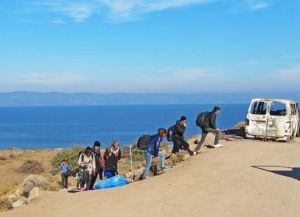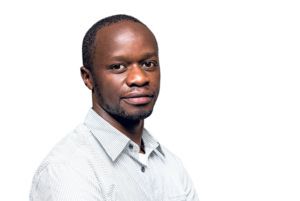Opinion
Straight Up: The ‘Invisibles’ on lockdown
Zach Khadudu
This article is more than 5 years old.

Perhaps we won’t miss them, but their absence will be felt (photo: Pixabay)
The two month-long lockdown in Denmark and across other countries has taken a toll on most of us, with many remarking how the Covid-19 crisis is an equal opportunity oppressor.
Nations big and small have been hit. Monarchs and commoners, the mighty and the proletariat, the bourgeois and working class – people of all races, classes, religions and political affiliations have been in one way or another affected.
But while this dreaded virus has been a common denominator for humanity, the fact is some have been more affected than others. Word.
Locked out
It is at this time of year when scores of migrants – mainly from Africa, Asia and the Middle East who live in Spain and Italy – make their way up to northern Europe in search of manual jobs.
A good deal come to Copenhagen and work as bottle collectors during the summer. The vibrant Danish summer and the many festivals – including Roskilde, Smukfest and the Distortion street party – offer an opportunity for them to make some money.
This year all that is gone. Locked borders, restricted movement and flight cancellations have robbed them of their livelihood. It is no-one’s fault, yet the misery of this particular group cannot be ignored.
Off the radar
Another group who have been even harder hit are the so-called ‘undocumented’ immigrants. These are the people living under the radar. They are mainly rejected asylum-seekers who stay here out of fear for their lives should they be deported. They end up falling off the radar of the authorities and living as undocumented.
They are now even more vulnerable. They often rely on collecting bottles for survival – literally. In normal times eking a livelihood is particularly hard for them. The lockdown has made it even more precarious. With no work and no social welfare net, most are suffering in silence out of our sight.
Granted, most governments are trying their best to combat the devastating virus. Particular commendations must go to our very able prime minister, Mette Frederiksen (shout-outs are also due to Jacinda Arden, Angela Merkel and Sanna Marin). These leaders have handled the Covid-19 crisis with grace and grit. The same can’t be said of Donald Trump, Boris Johnson and Jair Bolsonaro.
Invisible to our eyes
The suffering and death has been devastating. Yet, in a strange way, the virus has been pivotal in reminding us of our common humanity. Yet still our ‘common humanity’ needs to extend even to those least among us. Those who are invisible in our eyes.
While nobody is to blame for the havoc caused by the virus, the perennial mishandling of people labelled ‘undocumented immigrants’ is to be placed solely at our feet as citizens, and our political class.
Unlike the ravage caused by the virus, the disproportionate suffering of people living ‘underground’ is avoidable. Until now we as a people have chosen to ignore it.
To rephrase George Orwell: while all animals have been equal in this crisis, some animals have been more equal than others.

About
Zach Khadudu
Zach Khadudu is a Kenyan by birth and a journalist by choice. He is a commentator and an activist with a passion for refugee and human rights. He may share a heritage with a certain US president, but his heart lies elsewhere – in the written and spoken word.










































